Description
UltraTile ProPave External Tile Grout is a high specification, decorative, brush-in external tile jointing solution, suitable for use with granite, porcelain and other premium quality natural stone. The product is available in 4 bespoke colours – cosmic black, natural cashmere, pebble grey and storm grey – the perfect choice for a seamless transition for tiles inside to outside living spaces.
UltraTile ProPave External Tile Grout is part of the ProPave External Tiling System, which comprises the UltraTile ProPave Bedding Mortar, UltraTile ProPave Slurry Primer and UltraTile ProPave External Tile Grout.
It can be used all year round, in any weather and is suited for use on domestic paving applications or light non trafficable commercial areas. It is used to fill joint widths between 3-20mm. Before using UltraTile ProPave External Tile Grout, it is important to understand the installation being considered, the design of the base, the tiles being used and the conditions in which you will be working. Once UltraTile ProPave External Tile Grout is cured, it provides jointing between tiles that is permeable, meaning it will allow air and rain water to penetrate through. There are two methods of applying UltraTile ProPave External Tile Grout which focus on whether the bedding material below the tiles is permeable (free draining) or whether it is impermeable (non-draining).
Priming:
Porcelain tiles should always be coated on the back of the tile with UltraTile ProPave Slurry Primer, before being placed onto the bedding material. This will provide exceptional bond between the tile and bedding material, reducing risk of failure.
Application – Wet Method:
When the tiles are fixed using permeable bedding materials, such as UltraScape perma-bed, UltraTile ProPave External Tile Grout can be applied using the “Wet Application” method. This is by far the most popular method of application which is generally used for patios and walkways. This method uses copious amounts of water during application hence “Wet Application”. Hosing down the fixed tiles with water initially and during application of ProPave saturates the tiles and prevents oils from ProPave penetrating the tiles. It also ensures ease of application and assists with deep penetration of the product into the joint while aiding removal of excess material.
Thoroughly pre-soak the area with water before application. Pour the jointing sand evenly across the tiles. Using a stiff broom, brush sand into joints ensuring they are filled to capacity. Ensure the paving surface and sand are kept wet throughout the operation with continued use of gentle water flow from a hosepipe. This water aids deep penetration and compaction of the jointing sand as it drains. Repeat process until all jointing is filled to full depth. Soak the area with water & top up any joints that require further material and wash off excess sand from the surface. This water has to be drained free from the jointing before ProPave External Tile Grout will cure and harden, it will only cure hard when all traces of moisture have gone from the full depth of the joint. It is therefore important that for ”Wet Application”, the base of the new installation is permeable to allow water to free drain through into the ground below. Once the jointing has cured and hardened it is unaffected by further rainwater.
Permeable Bedding Materials – Patios & Walkways: For such areas carrying normal domestic foot traffic loadings the bedding material used should be permeable. Therefore a suitable bedding compound for the tiles should be no more than 6 or 7 parts clean sharp sand mixed with 1 part Portland Cement. Bedding materials containing cement are classed as “bound” as they harden due to the cement. Add enough water to ensure that the bedding mix just holds together in a ball when squeezed gently in a clenched (gloved) hand. Dot & dab methods of fixing tiles should not be used. Apply the bedding compound in a continuous solid bed, deep enough to support the paving. This will be strong enough to support the paving for foot traffic but will also remain permeable creating a free draining base. Higher levels of cement to sand will reduce the permeability of the bedding compound, reducing water drainage and potentially extending the drying time of ProPave. This should be avoided. Prior to applying the bedding compound, the sub-base should be suitably compacted to ensure it is firm and even, using recognised techniques. NB: Other examples of permeable bedding materials that can be used below tiles are compacted sand bed and compacted type 1 stone or combinations of both. In such instances, to ensure this type of bedding (known as “unbound”) is suitable for use with UltraTile ProPave External Tile Grout, the tiles need to be stable and edged on all sides with a fixed kerb or fixed edging stones (fixed with bedding mortar) that prevent movement.
Application – Dry Method:
This method is used to apply UltraTile ProPave External Tile Grout where (i) the bedding materials used to fix the tiling are impermeable and therefore will not allow drainage of application water (Wet Application) or (ii) where the temperature conditions are dropping below 3°C, with concern that the water application (Wet Application) will freeze and expand in the joint, before it has drained away, making it weak.
Once the tiles are firmly secured and set, gently pre-wet the surface using a mist spray of water, avoid flooding the joint. This prevents the jointing staining the tiles. Open the tub and pour the material along the joint, brushing it into the joint at the same time. As there is no water to wash the product into the joint, using this method with a pointing trowel and jointing iron will enable the material to be compressed into the joint. Top up the joint after compacting and repeat process till you achieve a suitable level.
Impermeable Bedding Materials – Domestic Driveways: Where there is requirement for additional strength in the bedding materials for tiles to support increased loadings, such as standing cars on driveways, then the resulting higher cement ratio to sand bedding material will be impermeable to water. Therefore the Dry Application method would, in this instance, be the preferred method for applying UltraTile ProPave External Tile Grout. The same method would be used for existing substrates with poor drainage or poor drying conditions.
Freezing conditions: There is a potential that if using the “Wet Application” method in conditions nearing or below freezing at the time of application of ProPave External Tile Grout then the freezing application water will cause damage to the uncured joint due to expansion. In such conditions, the Dry Application method would be preferred.
Jointing:
All tile joints should be a minimum width of 3mm and up to a maximum width of 20mm. Joint depths should be a minimum of 20mm (a deeper depth will increase the strength of the jointing compound). Deeper joints may extend drying times. It should always be ensured that UltraTile ProPave penetrates the full depth and width of the joint, without voids, to provide maximum stability. Voids left in the body of the jointing will cause permanent weakness in the joint. Prior to applying UltraTile ProPave ensure all mortar is raked free from joints to ensure clean and full depth. Once ProPave has been freshly installed, unless the moisture has completely drained free from the joint, the material will remain soft. It needs to drain free of moisture before it will begin to cure. (See drying section).
Key notes for jointing:
- UltraTile ProPave is not meant to stabilise loose tiles. All tiles should be firm and stable, on a stable base before jointing commences.
- When filling the joint with UltraTile ProPave always finish the material slightly below the surface of the tiles. Never leave it proud of the surface. The tiles should always be the wear surface, not the jointing.
- Before filling the joint make sure it is clear of any debris that will reduce the width of the joint or prevent the material making contact with the walls of the joint. This is particularly important when re-jointing existing tiles.
- All joints should be raked to their full depth to ensure they are free of bedding materials before commencing jointing.
- Some natural stone paving is cut with a sloping edge. This creates a “V” joint shape when all paving is positioned together. To add greater stability of the jointing, run the end of a pointing trowel along the joint making a channel in the bedding material below. When the UltraTile ProPave is added into the “V” joint the penetration of the material into the channel secures the jointing below the paving, providing greater anchorage and stability when cured.
- All dried mortar residues on the surface of the tile should be removed before commencing jointing. Please see cleaning section below.
- It is good practice to run a grouting tool over the face of the finished jointing before it has cured. This firms up and smooths the face of the product giving an additional resilience.
Curing:
UltraTile ProPave is an air cured product. In good drying conditions (20°C / 65% rh) and where water is free draining, UltraTile ProPave will firm up in approximately 24-48 hours, sufficient to accommodate foot traffic. It will continue to harden over the next 28 days. The rate of cure is dependent on both temperature and residual moisture. Application in conditions of poor drainage, where water lingers in the joint and freezing conditions, will delay curing of the product. Once the water has dried away from the joint, curing will re-commence.
Technical Data:
Density: 1,80g/cm3
Joint width: 3-20mm
Minimum joint depth: 20mm minimum depth, deeper depth will increase strength of the jointing compound
Coverage: Joint width x joint depth: 8-9.5m² based on a tile size of 450mm x 450mm x 25mm (depth) for an 8mm joint gap.
Working time at 20ºC: 35-45 minutes
Working temp: 3ºC to 35ºC
Walk on time: 24-48 hours (dry, ambient conditions with free draining base)
Full strength: 28 days
Dry compressive strength 1 day: 0.80N/mm2 7 days: 5.80N/mm2 28 days: 6.70N/mm2
Dry flexural strength 1 day: 0.56N/mm2 7 days: 4.33N/mm2 28 days: 5.91N/mm2


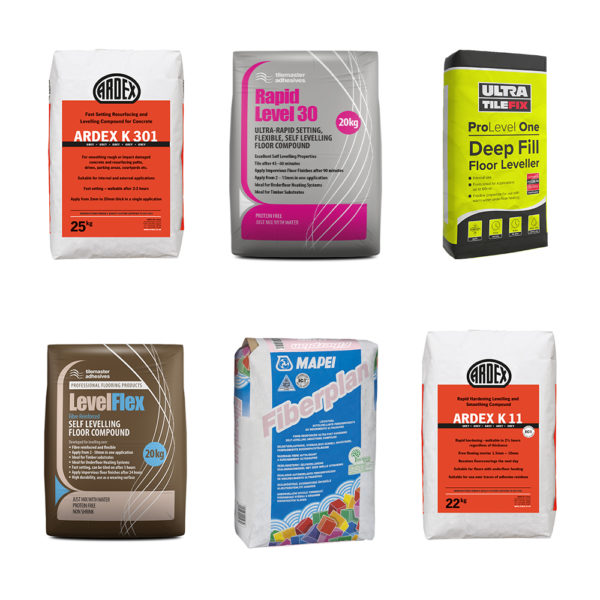
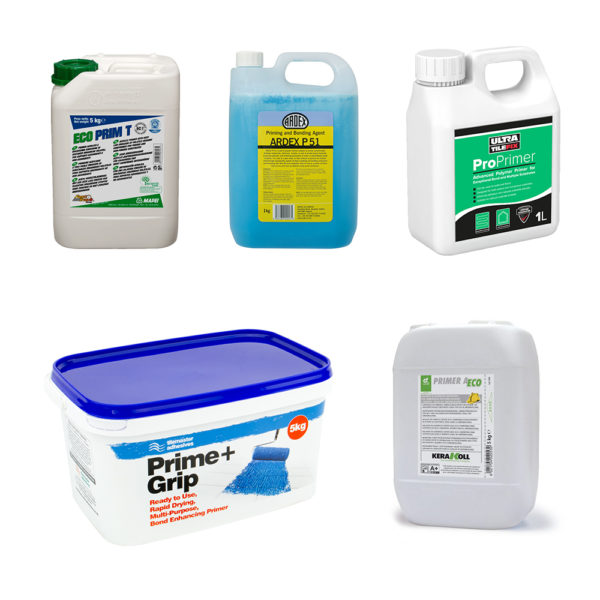
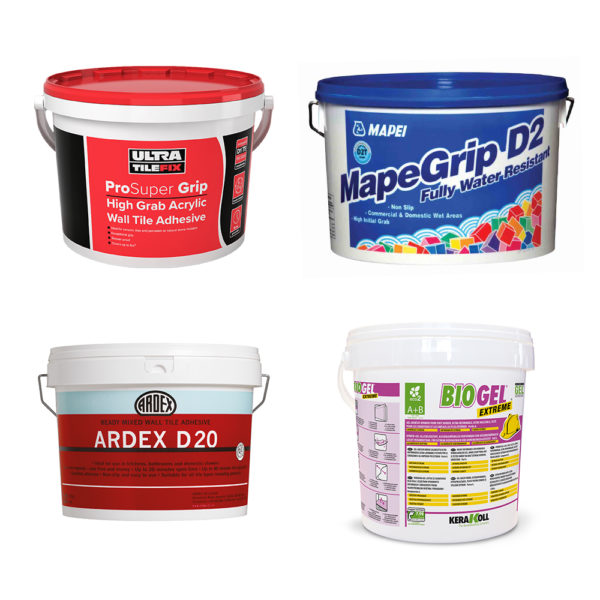
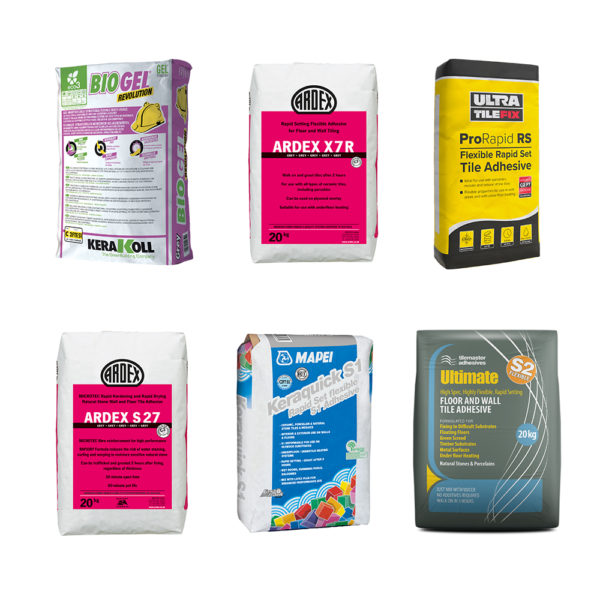
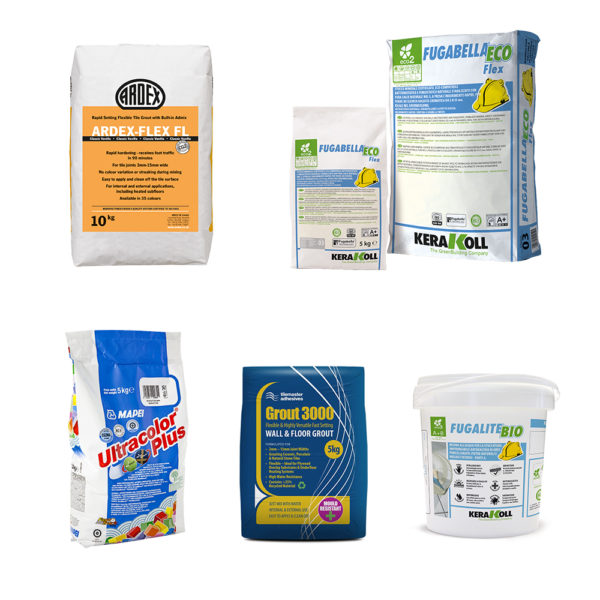
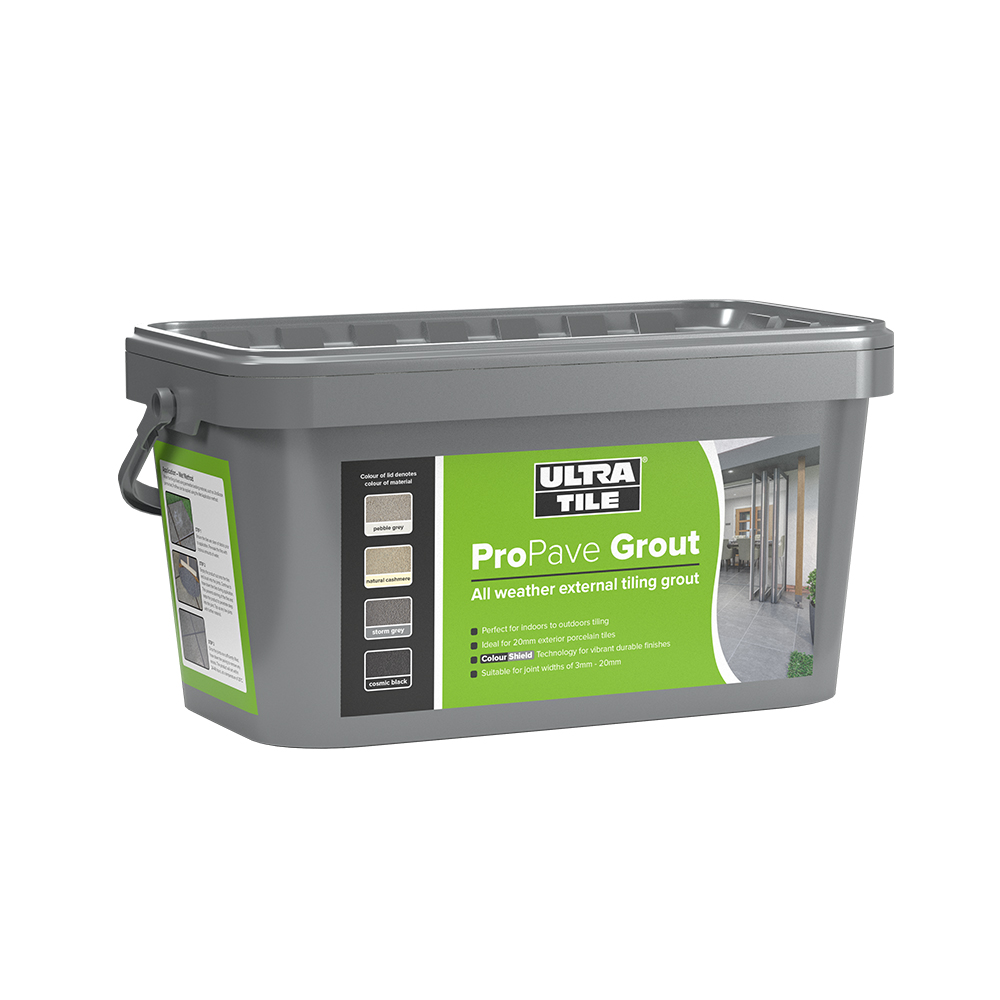
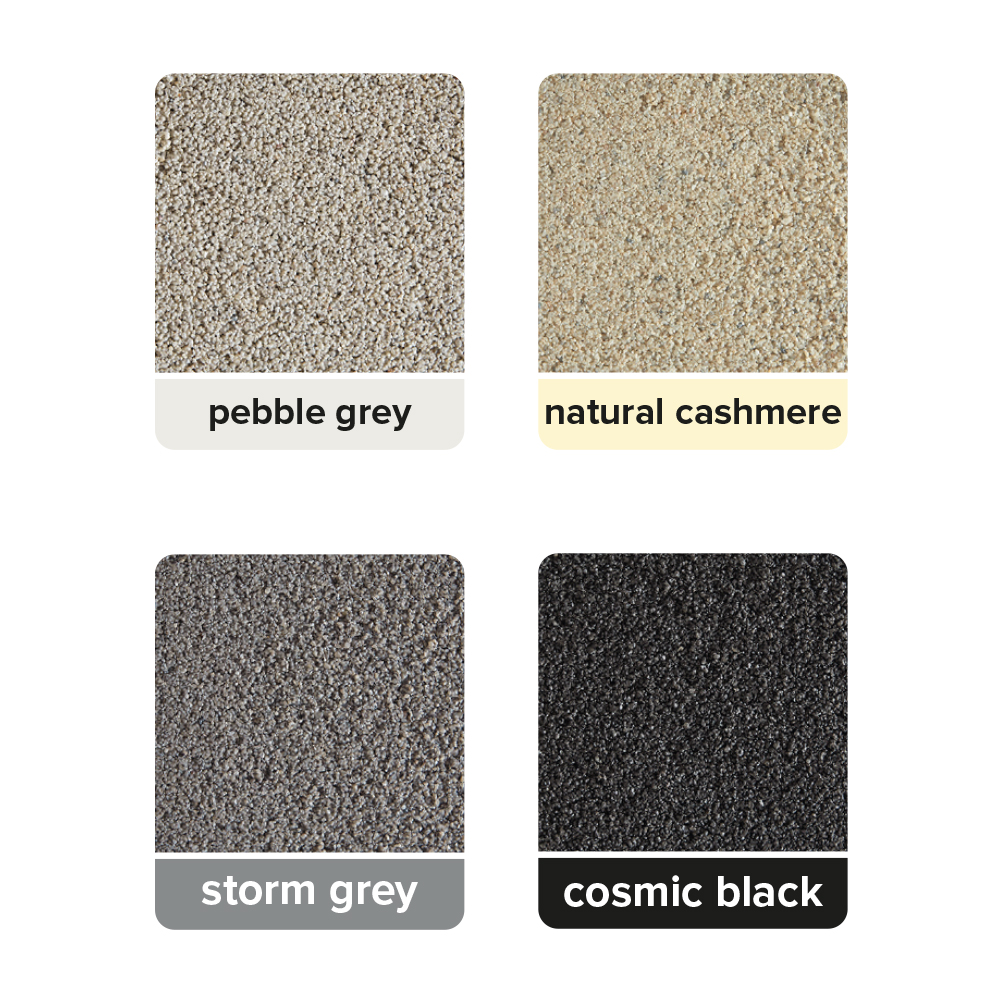
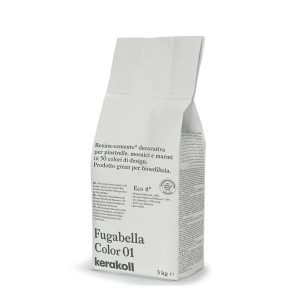
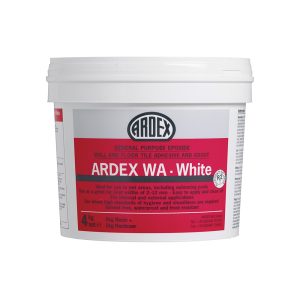
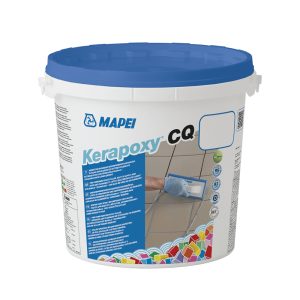
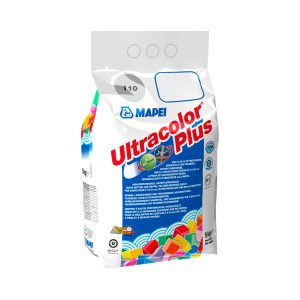
Reviews
There are no reviews yet.